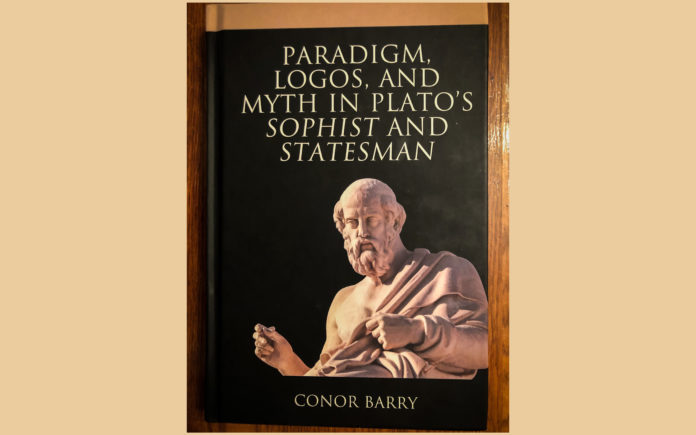

Just before the winter break, Lexington Books released Paradigm, Logos, and Myth in Plato’s Sophist and Statesman — a set of dialogues about the works of Plato, written by St. Thomas University professor Connor Barry.
He said his love for Plato’s work stemmed from being a fan of science fiction.
“In high school, I think we all dream about science fiction and invent all these ideas,” said Barry.
“It was really the realization of ‘oh, this was done 1,000 years ago.’”
Barry said the idea to write this book started in his master’s degree in humanities at Ottawa University, where he studied the literary understanding of Plato, an ancient Greek philosopher, and one of his lesser-known works, the Theatetus.
He carried that love forward pursuing his doctorate in Philosophy.
Prominent Plato scholar A.N. Whitehead described all of philosophy as being “footnotes to Plato,” which moved Barry, saying that he found being a Plato scholar deeply rewarding.
Barry said the book itself is a culmination of his many articles, presentations and many years of researching Plato and philosophy.
“It was something that originally I wanted to write in six months, but that was totally preposterous,” he said.
Barry said his book tries to reconcile the two ways people tend to understand Plato’s philosophy — as a literary work to study or a set of philosophical principles about how to live.
Plato organized his writings as a set of dialogues, between Socrates and a peer in Ancient Athens. Socrates was usually part of the dialogue and played the role of asking constant questions.
While he initially wanted the book to arrive at a kind of fixed answer, Barry realized he was approaching it the wrong way, explaining that coming up with a fixed answer might not be possible seeing as Socrates never took that approach — he did it through questioning.
“To recognize the openness and the questioning stance that philosophy is never over was the transition I went through,” said Barry.
With files from Jacob McFarlane.
